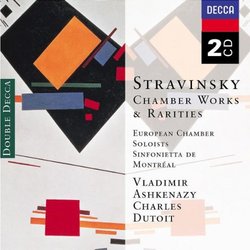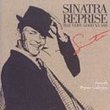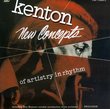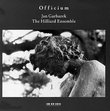A riveting collection
G.D. | Norway | 12/27/2009
(5 out of 5 stars)
"Cleverness and ingenuity may be the first characterizations that spring to mind when listening to the series of remarkable works on this double disc, but there can be little doubt that many of them - despite their modest scopes and apparent scarcity of resources - are genuine masterpieces. The programme runs the whole gamut of Stravinsky's mid- to late career and presents us with a kaleidoscope of musical dialects, proving that Stravinsky is one of those composer who needed just a minute and a dozen notes to create something of lasting significance. The Septet, for instance, is a transitional work, straddling the composer's neo-classical middle period and his late dabbling with serial techniques - it remains, however, one of his most approachable and even catchy works despite its formal complexity.
The modest Epitaphium is a late piece and fully serial, but still a stirring creation. The earlyish Ragtime (1918) sounds more experimental, however, with its strange sound-world dominated by the cimbalon. In between we find such stirring works as the Three Pieces for solo clarinet - one of the clearest examples of Stravinsky's ability to create masterpieces with modest means - wonderfully rendered here by Dmitri Ashkenazy. The Pastorale is elegant but does pack something of a punch nonetheless, and the buoyant and ebullient Concertino leaves a deeper and more lasting impression than one might think it will upon first hearing it. The Octet is gentle and charming but with a powerful snap and sparkle to it. Throughout Ashkenazy's performances are superb; mostly cool and confident and elegant - there are more rough-edged alternatives that are equally valid, but the approaches chosen here isaretruly convincing in absolutely every respect. I wouldn't want to trade the original scoring of The Soldier's Tale suite for this trio arrangement, but I have no complaints about the playing. And the recording of the concerto for two pianos - one of the composer's own favorite works, and a really stunning piece - is elegant, witty, refined and with multilayered textures, but might perhaps lack just the last bit of fire; still, it's a performance I wouldn't want to be without.
The second disc features some more substantial works (in terms of scope if not content), and at least some slightly more familiar ones. Dumbarton Oaks might receive one of the less convincing performances here - it is glittering, mechanically playful and colorful, but just a little too slow to be able to build up enough steam to make the powerful impression it can make. The Concerto in D is however superb, brisk and fresh and incisive. The Danses concertantes are lively and sharply pointed and Dutoit finds the right balance between humour and seriosity. The Quatre études are 1928 arrangementz of the Three Pieces for String Quartet and the Etude pour Pianola, although the new instrumental clothings turn them into entirely different and stirring works. The masterly, modest 2 suites are striking and excellently performed and the Four Norwegian Moods are rendered with lots of rugged character (although I have no alternative performances of either, so cannot really compare).
In short, this is a wonderful program, then, superbly played and given really good recorded sound throughtout. Not every performance might perhaps find its way to the top of the list of alternatives, but overall this is a gem of a set - consistently strong performances of striking, masterly and not the least very entertaining music; very strongly recommended."


 Track Listings (15) - Disc #1
Track Listings (15) - Disc #1



